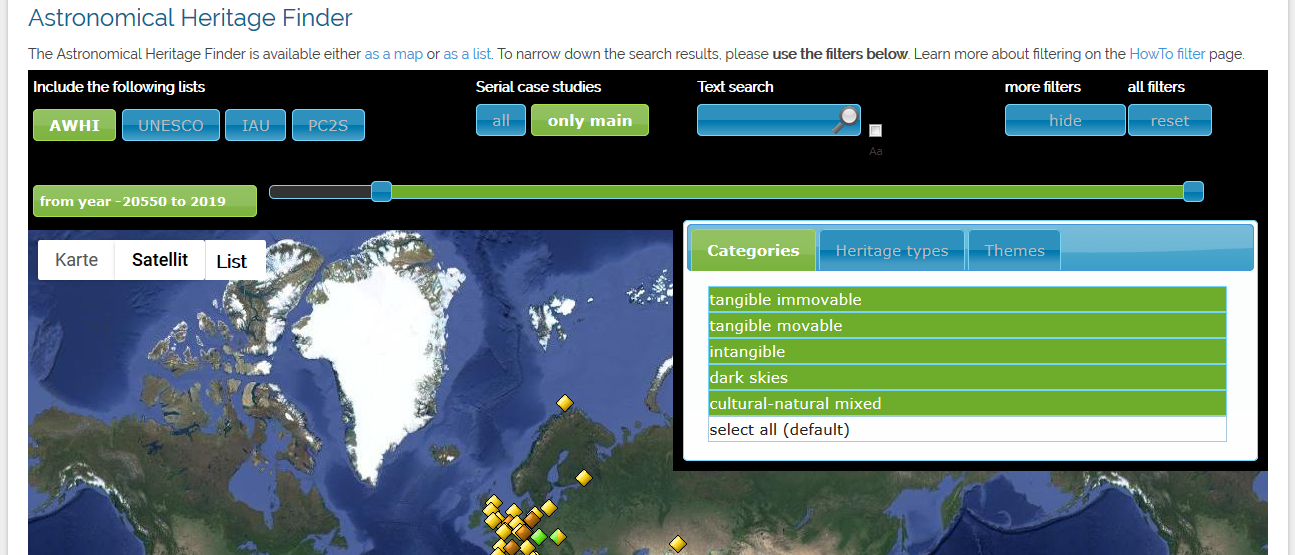Astronomical Heritage Finder - HowTo filter
 We aim to give you a wide range of filtering options for our Astronomical Heritage Finder. But this comes with a downside: the filtering options can seem overwhelming and complex. So let us give you some more details on how to use these filters to narrow down your search results.
We aim to give you a wide range of filtering options for our Astronomical Heritage Finder. But this comes with a downside: the filtering options can seem overwhelming and complex. So let us give you some more details on how to use these filters to narrow down your search results.
Select heritage lists
Select which (combination of) heritage lists you want to see (at least one is needed):
- AWHI: The main Portal case studies, developed within UNESCO’s Astronomy and World Heritage Initiative, in both full and short formats
- UNESCO: Sites that are also listed on the UNESCO World Heritage List or national Tentative Lists.
- IAU: The IAU’s own list of “Outstanding Astronomical Heritage” observatories
- PC2S: Places Connected to the Sky (our Portal Community Project, an endorsed project of the IAU-100 celebration)
Serial case studies
Activating this filter will show you ALL nodes for multi-location (serial) case studies. Deactivating this filter will show only the MAIN node, selected to represent the whole series.
Text Search
This option allows you to search for specific words or phrases within all case studies. Tick the small box for a case-sensitive search.
Timespan slider
This option allows you to select case studies within a certain period of time, depending on their (estimated) active usage. Please note that in many cases the start-of-active-usage and end-of-active-usage year numbers are only rough estimates.
Case studies where only the end-of-active-usage or start-of-active-usage date is within your selected time period will be included in your selection.
The “more filters” tabs
When you activate the “show” button below the words “more filters”, you will see additional tabs presenting various further filtering options.
More filters -> Categories
Select one or more categories of astronomical heritage to be included in your search. (The default is that all categories are shown.)
More filters -> Heritage types
Select one or more types of astronomical heritage (e.g. observatory, instrument, artefact, starlight reserve, etc.) to be included into your search. (The default is that all types are shown.)
More filters -> Themes
Select one or more astronomical heritage themes to be included in your search. (The default is that all themes are shown.)
Reset “all filters”
Use ths button to reset all filter settings to their respective default values.

